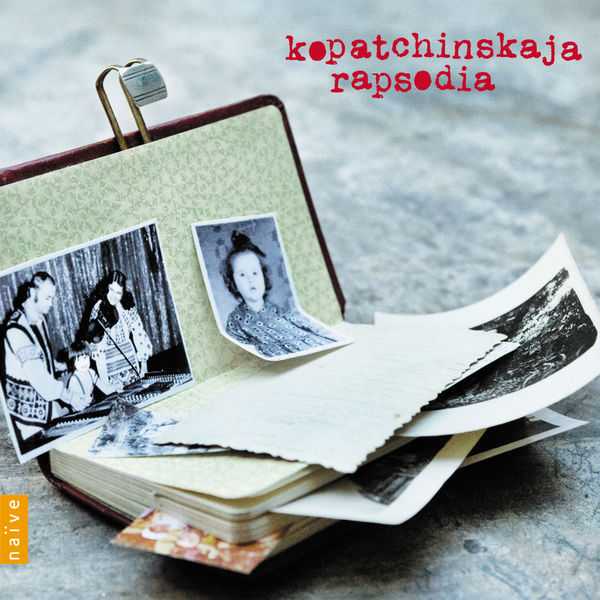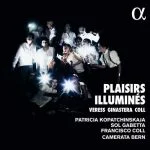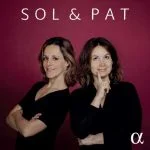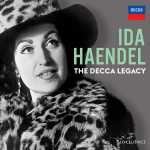
Composer: Grigoras Dinicu, George Enescu, György Kurtág, György Ligeti, Maurice Ravel, Jorge Sánchez-Chiong
Performer: Patricia Kopatchinskaja, Emilia Kopatchinskaja, Viktor Kopatchinsky, Martin Gjakonovski, Mihaela Ursuleasa
Format: FLAC (tracks)
Label: Naive
Catalogue: V5193
Release: 2010
Size: 284 MB
Recovery: +3%
Scan: yes
01. anon.: Ciocârlia
02. Enescu: Ménétrier
03. anon.: Doina Et Hora Marit?
Enescu: Violin sonata No.3
04. Moderato malinconico
05. Andante sostenuto e misterioso
06. Allegro con brio, ma non troppo mosso
07. Ligeti: Duo et hora for cimbalom solo: Doina
08. anon.: Duo et hora for cimbalom solo: Hora
09. anon.: Hora
Kurtág: 8 duos for violin and cimbalom, op.4
10. No.1
11. No.2
12. No.3
13. No.4
14. No.5
15. No.6
16. No.7
17. No.8
18. Dinicu: Hora Staccato
19. Ravel: Tzigane
20. Sánchez-Chiong: Crin
21. Sánchez-Chiong: Calusari 1
22. Sánchez-Chiong: Calusari 2
23. Sánchez-Chiong: Calusari 3
The exciting young Moldovan violinist Patricia Kopatchinskaya, who earlier this year won a BBC Music Magazine Award for her recording of Beethoven’s Violin Concerto, is here joined by a small group of musicians including her mother, also a violinist, and father, a renowned cimbalom player, in a selection of pieces that reflect Eastern European folk and Gypsy traditions. Amongst the composers represented are Enescu, Ligeti, Kurtág, and Ravel.
One of the few pieces to feature the cimbalom as a main instrument in the standard classical repertoire is György Kurtág’s 8 Duos for Violin and Cimbalom. Kurtág comes from a part of Hungary close to Romania, and his music in these short pieces is steeped in the folk tradition both countries. The Romanian composer George Enescu’s music is celebrated for its Gypsy rhythms and these elements come to the fore in his Third Violin Sonata.
Patricia Kopatchinskaya was born in Moldova and raised in a family of musicians. “Rapsodia” was the name of the former band of her father Victor Kopatchinsky, one of the most famous cimbalom players of his generation. Her parents were constantly travelling with their ensemble, playing 300 concerts every year – in the Kremlin for the government and the generals, in factories and prisons, and in Siberia, North Africa, and Latin America. With her father on the cimbalom, her mother playing a second violin and friends such as Mihaela Ursuleasa, she here performs works rooted in traditional Moldovan and Eastern European music alongside pieces such as Ravel’s Tzigane that have a Gypsy inspiration.



